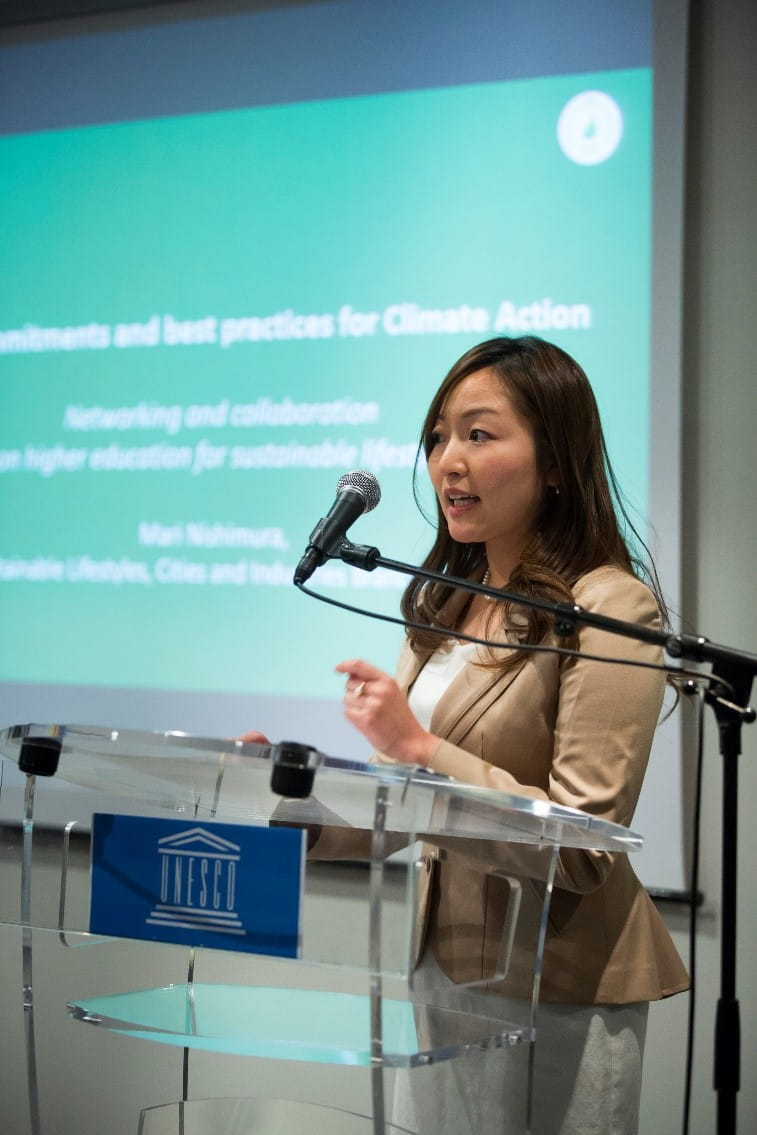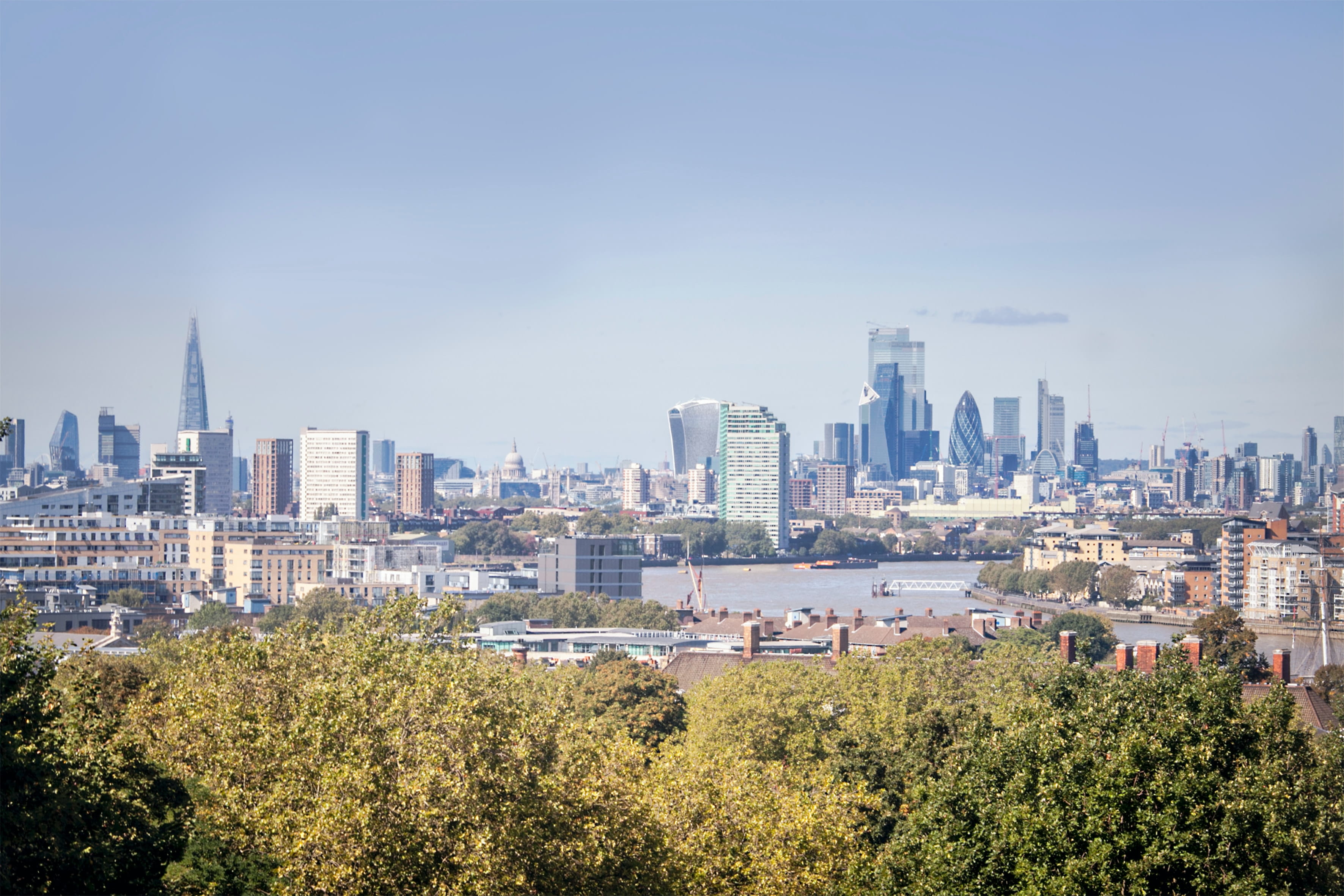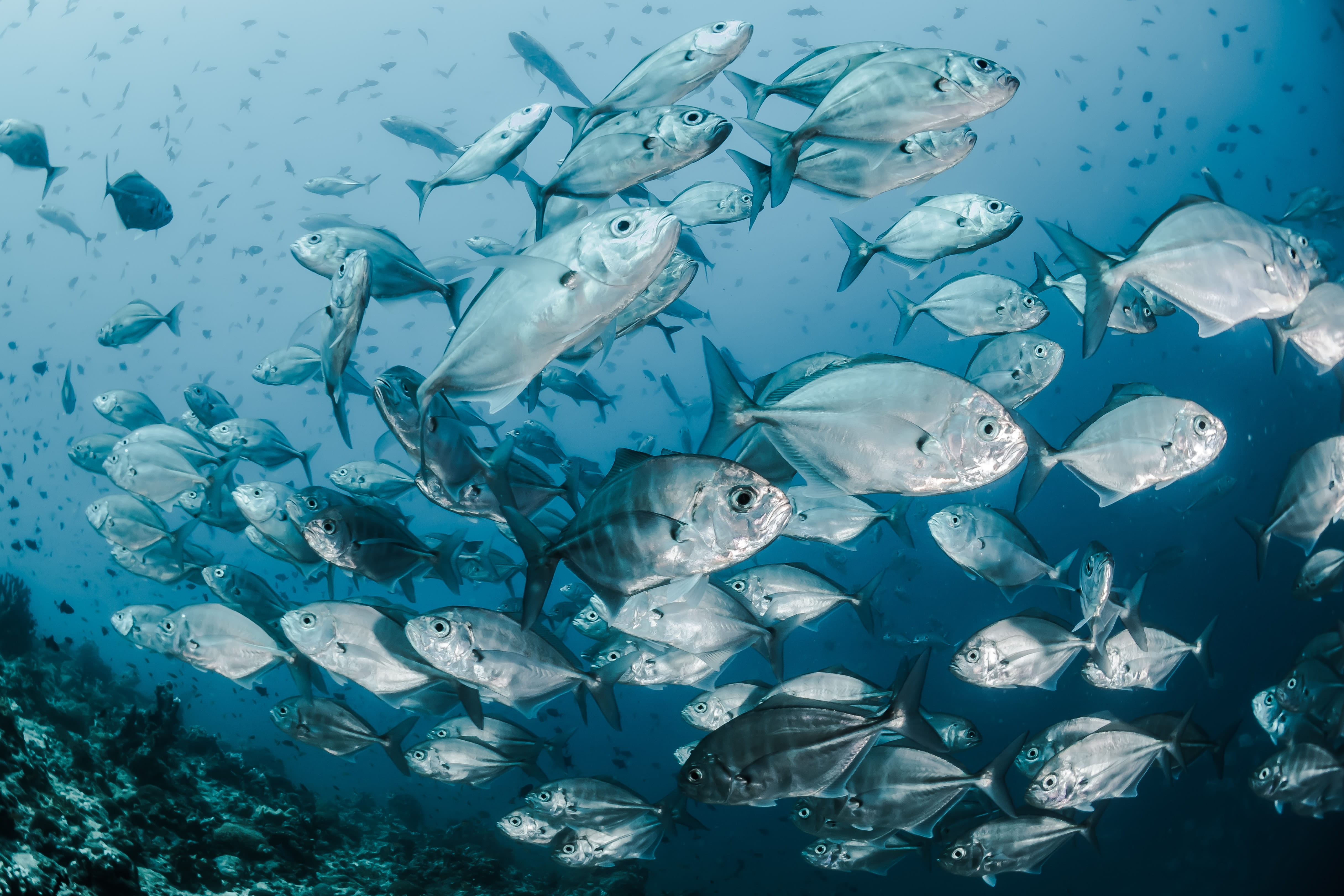The Time for Action Q&A: Mari Nishimura, UNEP

Mari Nishimura (BA International Relations and Politics, 2006), currently works for the United Nations Environment Programme (UNEP), based in Nairobi, Kenya, where she looks at Education and Youth with a particular focus on higher education.
UNEP was established in 1972 to be “the environmental conscience of the UN and the world”. Currently, it’s ‘six areas of concentration’ include climate change, post-conflict and disaster management, ecosystem management, environmental governance, harmful substances and resource efficiency/sustainable consumption and production.
Born in Japan, Mari applied to study in the UK despite limited English: “When I first arrived, I couldn't even ask people to take a picture of me, or order a cab (laughs). I went to a language school in Saffron Walden and Cambridge for five months, just to learn English.”
Mari describes her time at Essex as “one of the highlights of my life, for sure. I got to know people that I would never have ever met if I had stayed in in Japan. If you want to pursue international relations, it’s really important to be in the middle of cultural exchange and that’s what the University of Essex stands for. I'm really, really grateful for the time I had in Essex.”
In her third year, she became the only student in the Department of Government to be enrolled in the Erasmus exchange programme to study abroad. Her semesters in Maastricht University, in the Netherlands expanded her interests in European Politics.
Completing her Masters in Brussels, she worked at the European Parliament, subsequently taking roles in public policy and advisory at European Union level.

We speak via Zoom on the first day of Tokyo Olympics, but a trio of environmental stories - flooding in China, Siberian forest fires and a high-profile key speech by John Kerry, the United States Special Presidential Envoy for Climate – dominate the news.
In your current role, you’re focused on behaviour change – helping us all live more sustainably. This work feels more urgent than ever, so how can we encourage positive behaviour change?
“It's really difficult, isn't it, to change behaviour? I find it myself. Trying to reduce travels, change dietary choices, or choose more sustainable products over something that looks attractive or convenient today: it's hard to change a habit once it’s established.
“One of the pieces of work that I'm leading on is called Green Nudges. It's a project based on The Little Book of Green Nudges that was launched last year - a really simple user-friendly guidebook that features 40 options that any university can implement right away.
“For many students, university is their first experience of living away from home, and of running chores for themselves. They are establishing habits and routines in many aspects of their lives. That time as students represents a key, timely moment for intervention.
“We have 135 campuses involved in our pilot and we chose the 40 nudge options because they are low or no cost and can be applicable globally.
“So, you might have a competition between different houses on campus around consumption - energy consumption and water consumption. That competition could nudge people to take more responsible actions.
“A lot of universities think that being sustainable means just putting a few solar panels on campus. That's definitely a great thing to do, but within the university you have students, faculty members, people like catering managers - everyone can be part of this.
“So, start small and have fun, that's the only way to change behaviours!” (laughs)
Your role must give you a genuinely global perspective. It’s easy to get lost in domestic debates, but where is the focus for you currently?
“Oh, there's so many things, but if I have to pick one I would say lifestyle.
“I can't say exactly what is wrong, but it’s about the way we are comfortable living, and also that we're comfortable saying what's wrong but not doing anything about it.
“You know, we have more technology than ever, and more access to data and information. We also have more past mistakes to learn from. We have more international commitments in treaties. So, what now?
“It's almost 30 years since the Rio Summit, the ‘Earth Summit’ as we call it. That summit was created as a platform for the Member States to reinforce international cooperation on environmental and development issues.
“There are people who were new graduates back then who are now decision-makers, whether at the UN, or in national governments, or in big corporations. Some of them became teachers too. They have grown up with this and yet we are still producing more, consuming more, polluting more.
“The positive thing is that today's young people are more informed, more demanding and proactive than ever. That makes me feel confident and positive about a sustainable future, but at the same time I don't think we're doing enough to give those young people a real space to do something about it.
“What are we doing to equip them with the skills and knowledge they need to grab the opportunities that come with the green economy?
“If more sustainably-minded young people - students coming through the University of Essex, for example – can challenge the way we do things, this can be reversed, but we need to do more to support that process.
So what can we, as a university, do?
“I think there's two things.
“One is about creating the mindsets and skill sets that are needed for a sustainable future. The second is to empower young people.
“90% of the information young people get these days is from phone apps. That’s not what they need. What they need is human interactions that cultivate their mindset, and get them thinking about what makes them happy.
“Are they happier when they're sharing a car with their friends? Or when they're driving in a cool car alone?
“Would they prefer to have an extra bedroom? Or is it more important to have nice neighbours that care for you? That kind of thing.
“Are they aspired to pursue a well-paid career that is making our air and water polluted or do they want a job that’s helping us solve those issues?
“Universities, or anybody who's working with young people, can ask these questions, ask young people to think about what will help them thrive.
“If there are little reminders on campus, that would be really useful.
“In terms of skill sets, it's interesting, because there are 200 million students enrolled in higher education but then around 75 million young people are actually struggling to find a job.
“This situation was only exacerbated by the COVID-19 pandemic.
“The pandemic took a huge toll on education. Last year, the ILO estimated the equivalent of 250 million full-time jobs were lost and who was one of the hardest hit? The education sector.
“So we have to think about how we can help those 75 million young people who are struggling to find a job, plus the 200 million students waiting to work in the future. How can we help them pursue careers that they aspire to, which are essential for a sustainable future.
“Part of UNEP’s work is to help industries transition into the green economy. That change will create up to 60 million more jobs by 2030.
“Many of those 60 million jobs don't exist yet, so there is no guidebook, no textbook that universities can offer to do those jobs. But what universities can do is make more connections with business, so they know what the market demands are today and what they will be in five or ten years, to identify the skills that current students will need.
“If the University can actually create that stronger connection with businesses and local government as well as NGOs and include those skills in the curriculum, that creates a win-win situation for both future employers and the future work workforce.
“So we need that cross-sector engagement and also, of course, local governments, national governments needs to invest more in education as well, which in turn will prevent a brain drain.
“Another thing a university can do which actually makes a huge impact on our sustainable future is have ethical banks on campus. This is sort of a nudge too. Many students are creating their bank accounts for the first time on campus, and likely will stay with the same bank after graduation and when they join the workforce. Where does the saving go? It’s certainly not sitting in the bank. Banks invest our savings elsewhere. Do we want your banks to be funding wars and climate crisis? How sure are we that our money is not invested in arms industry like nuclear weapon producers or companies profiting from burning fossil fuels? If a university hosts ethical banks on campus that invest in green business or offer capital to young green entrepreneurs, the university is investing in students’ greener future.
“Finally, let’s not forget gender equality. The integration of gender equality into economic and social policies is the fundamental requirement for sustainable development. Gender pay gap and access to finance, lands, and education are correlated to a nation’s long-term competitiveness in green economy.
"The society is surely shifting towards better. A small improvement can be seen when you compare the world leaders group photos between the Rio Summit and COP21 in Paris, but it’s clearly not enough. I am hopeful that we will be looking at a completely different picture when today’s Essex students become the leaders.
As young people begin to move, in large numbers, into those green jobs – jobs providing positive solutions – is there a hope of a ‘critical mass’? If the development of positive solutions becomes their day-to-day, it feels like the necessary culture shift will start to gain ground.
“I think that's so true. And any job can also be Green, you know. People seem to think you have to be an engineer, maybe, to tackle environmental issues, but that’s not the case. A salesman can operate in a more sustainable way. Any office can change the way they procure things."
You mentioned the need to also empower young people.
“Yes, it’s really important to let the students run the initiatives around green nudges. Young people can be so creative. There was one example I saw recently where young people had suggested working with a canteen manager to change the order of buffet setting from vegetables-to-meat instead of meat-to-vegetables. By the time people reached the end of the buffet counter, it left little space for meat options so it nudged students to choose plant-based options. Another example is a gamification – putting a basket net over a recycling bin or setting up a ballot bin for cigarette butts to prevent littering.
“It's fun to do these things and we need to put the fun and happiness into behavioural change!"
Given all this we've discussed, are you positive about the future?
“Of course, of course! I'm glad that we're speaking, because a university is such a powerful entity. It’s the hub and the source, you know, of future leaders and decision-makers, and the best place to actually help the transition towards sustainable development, because we're actually seeing the largest youth population in history: half of the global population is under 25.
“So yes, I'm definitely hopeful. As I said, we have more technology, more data and more information. We also have more resources than ever, and the future leaders to choose how to use our resources, our intelligence, our power. It's really up to us,
“76 years ago, a handful powerful people full of intelligence decided to use nuclear weapons, you know. It's really up to us to decide how to use that same power and intelligence to make peace with nature."



